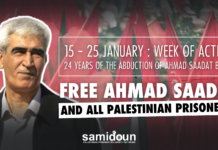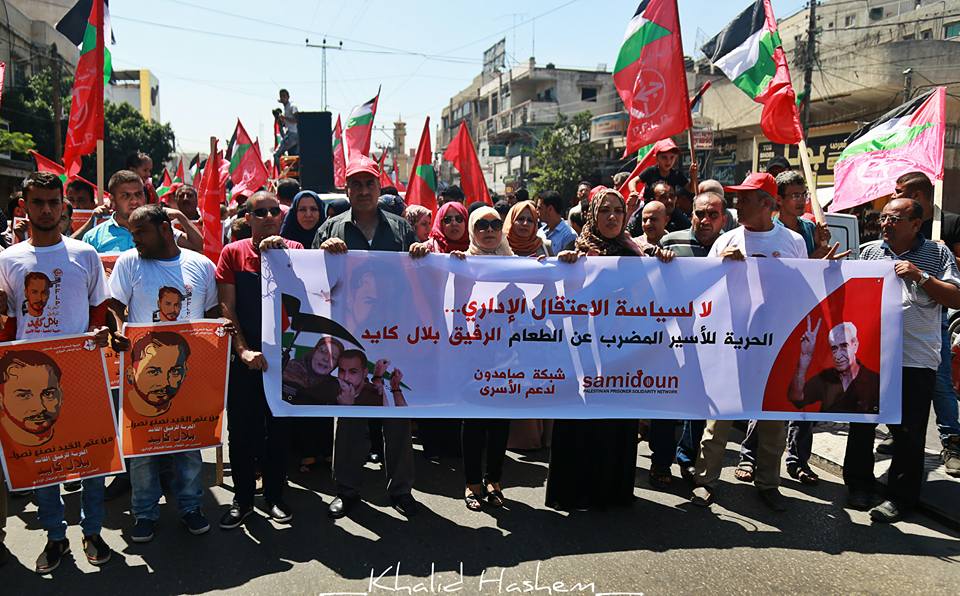
Palestinian prisoner Bilal Kayed is on his 30th day of hunger strike, demanding his freedom from administrative detention without charge or trial; the six-month administrative detention order was imposed upon him on 13 June 2016, immediately following the completion of his 14.5-year sentence in Israeli prisons.
Rather than being released to his home and family – who were left to wait for him at an Israeli checkpoint – he was instead ordered to administrative detention on the basis of “secret evidence.” Held in solitary confinement since that time, he launched his hunger strike on 15 June.
Kayed remains in solitary confinement in Ashkelon prison. He is held in a small cell, 1.5 x 2 meters in size, without a window, and is denied access to a fan, electronic devices, and reading material. He was briefly transferred to the hospital on Tuesday, 12 June, for EKG tests, but was then returned to the prison, where he remains. Kayed’s health has deteriorated, he has lost significant amounts of weight and he suffers from dizziness, fatigue and insomnia.
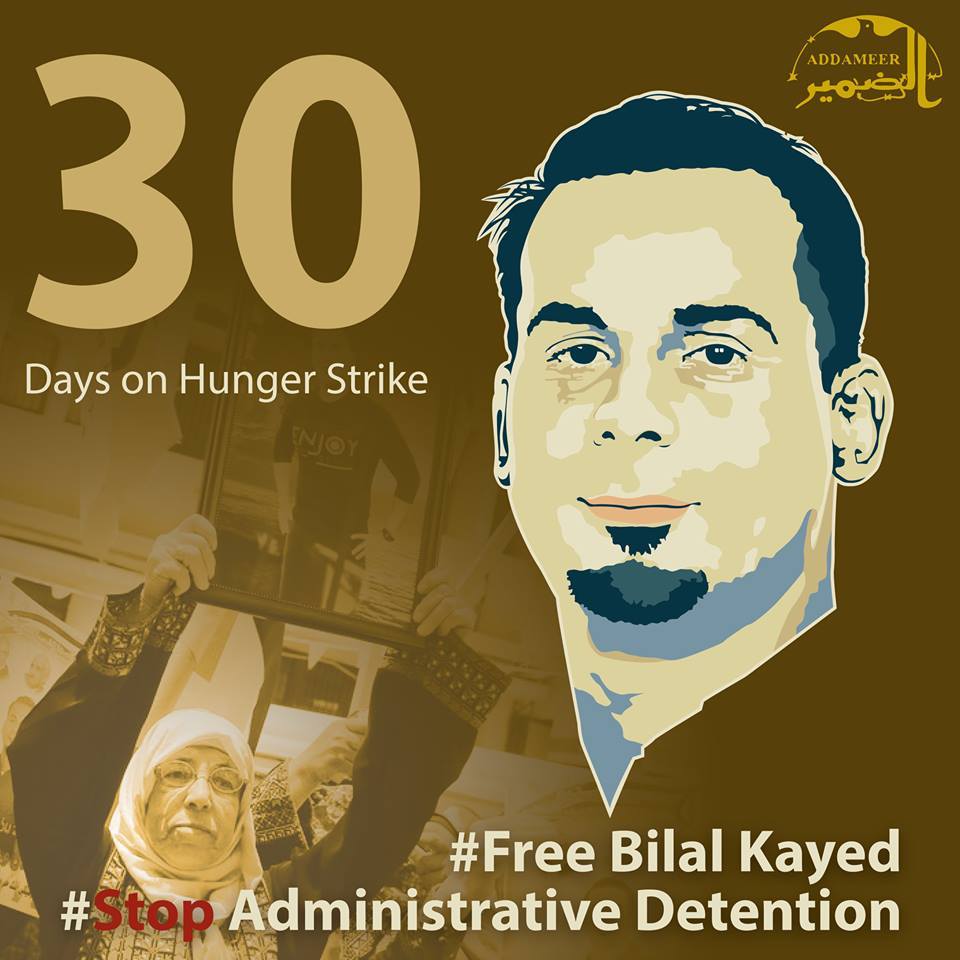
Contrary to some reports in Arabic-language and Palestinian media, Kayed’s lawyers in Addameer Prisoner Support and Human Rights Association refuted claims that he had been transferred to Soroka Hospital, noting that he remains in isolation in Ashkelon. Addameer cautioned against the reporting of unfounded rumors about Kayed’s situation.
Farah Bayadsi of Addameer, Kayed’s lawyer, noted that an appeal hearing on Kayed’s detention will take place today, 14 July, at Ofer Military Court. Kayed has boycotted the military courts convening on his detention, rejecting them as illegitimate.

Hundreds of Palestinian prisoners, affiliated to the leftist Popular Front for the Liberation of Palestine, Kayed’s party, are engaged in a series of protest actions and limited-time hunger strikes demanding Kayed’s release, escalating to a full collective open hunger strike. Over 300 prisoners are refusing food on 14 and 15 July, and will do so again on 17 and 18 July. Sections of the PFLP prisoners were stormed by repressive units yesterday, their sections have been locked down, they have been prohibited from family visits, and their personal belongings confiscated. 600 NIS ($150) fines have been imposed on all prisoners participating in the hunger strikes.
Support for Kayed runs strongly across political lines. The Palestinian Prisoners’ Movement, comprised of all the Palestinian factions in Israeli jails, including Hamas, Fateh, the PFLP, Islamic Jihad and the DFLP, isssued a statement on Tuesday, 12 July, emphasizing support for Bilal Kayed, and that “this battle is the battle of the prisoners’ movement as a whole.”
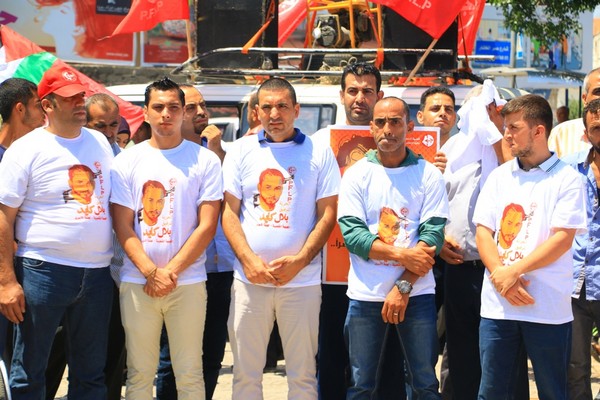 The Palestinian Human Rights Organizations Council issued a statement demanding the release of Kayed and the end of the use of administrative detention.
The Palestinian Human Rights Organizations Council issued a statement demanding the release of Kayed and the end of the use of administrative detention.
Events and actions are being organized throughout Palestine and internationally for Kayed’s release. A global week of action for Kayed is being organized for Kayed from 8-15 July; events will be held on 14 July in Amman, Haifa, Nablus, Beirut and Milan; on 15 July in New York City; and on 16 July in Istanbul.
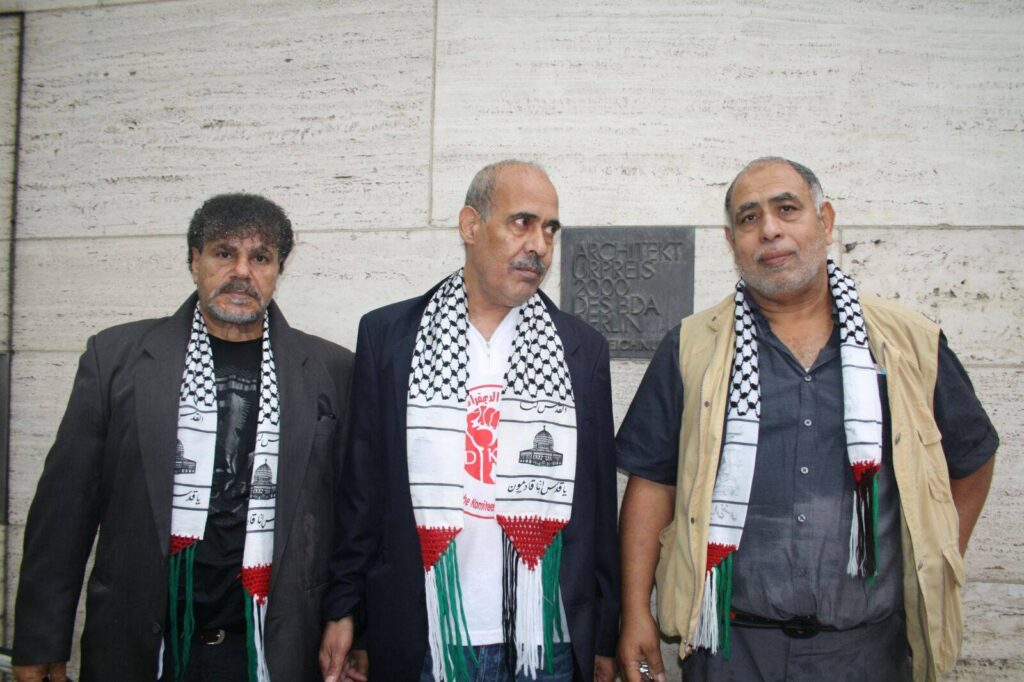 In Berlin, Germany, on 13 July, the Democratic Palestine Committees met with the German Foreign Ministry, delivering a letter on behalf of Palestinians in Berlin urging action on the case of Bilal Kayed and the issue of administrative detention. They also held a protest outside the office of the Foreign Ministry.
In Berlin, Germany, on 13 July, the Democratic Palestine Committees met with the German Foreign Ministry, delivering a letter on behalf of Palestinians in Berlin urging action on the case of Bilal Kayed and the issue of administrative detention. They also held a protest outside the office of the Foreign Ministry.
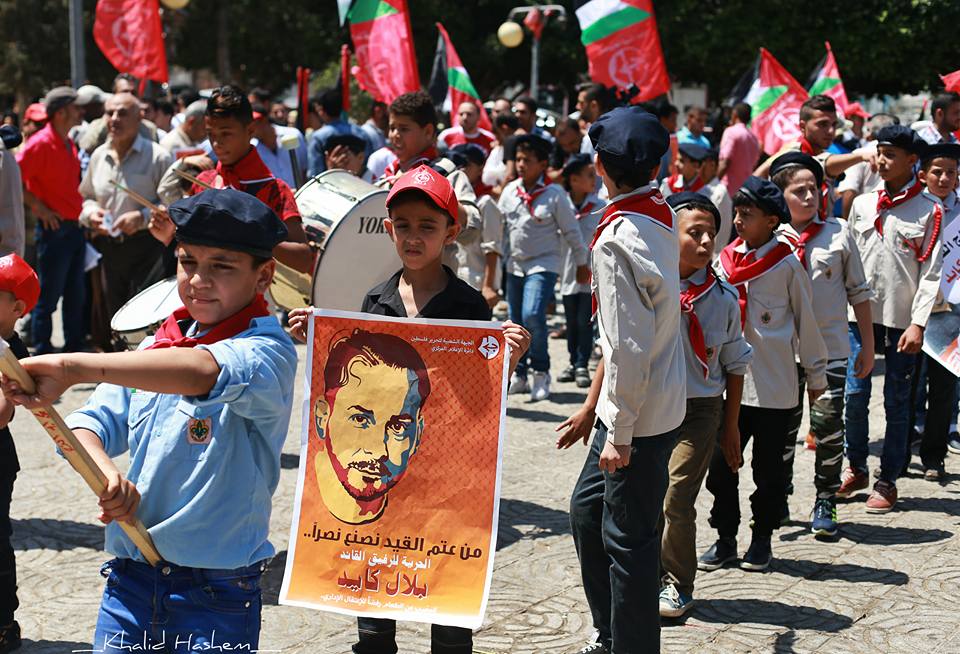
In Gaza, a mass march and rally led by Palestinian children marched through the streets of Gaza City, from Saraya to the Square of the Unknown Soldier. Participants from the PFLP, mass political organizations, labor and women’s organizations, former prisoners, and Palestinian political organizations and parties, demanded the end of administrative detention, freedom for Bilal Kayed and for all Palestinian prisoners. Mohammed Makkawi of the PFLP said that the detention of Kayed and the repression campaign against PFLP prisoners were a “means of revenge and intimidation practiced by the Israeli prison administration against the imprisoned Kayed and his comrades…they will not break the will of the prisoners, and will not succeed in stopping this battle that has opened the door for a new confrontation against the criminal policy of administrative detention which represses hundreds of strugglers.” Makkawi urged “massive, sustained and diverse popular participation in the events to support the prisoners and their rights generally and the battle of the prisoner Bilal Kayed in particular,” highlighting the ongoing international solidarity with Kayed’s case.
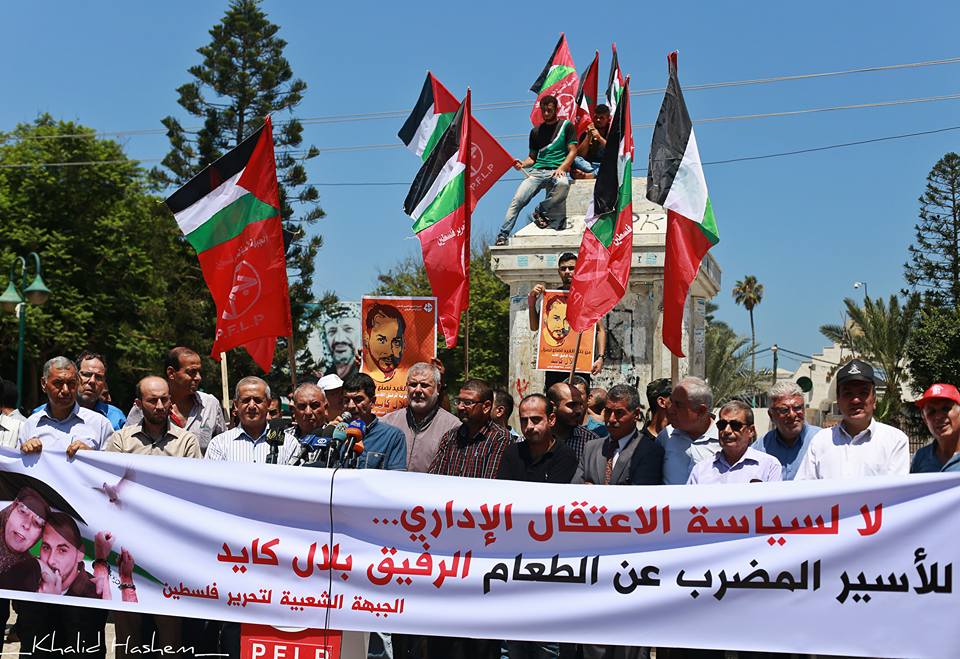
Dr. Abdullah Abu Atta, speaking at the event on behalf of the national and Islamic forces, urged “all friendly organizations, international bodies, the international community, the International Committee of the Red Cross, and all the parliaments of the world…to pursue the just cause of Palestinian prisoners and work for their speedy release.”
A “Twitterstorm” – an electronic campaign focused on posts at a specific time on Twitter about a specific issue – for freedom for Kayed is being organized for tonight, 14 July, at 8 pm Palestine time (1 pm EDT, 10 am PDT, 5 pm GMT). Addameer Prisoner Support and Human Rights Association will be updating its Facebook page with information about the hashtags to be used shortly before the Twitterstorm begins.

Discover more from Samidoun: Palestinian Prisoner Solidarity Network
Subscribe to get the latest posts sent to your email.



